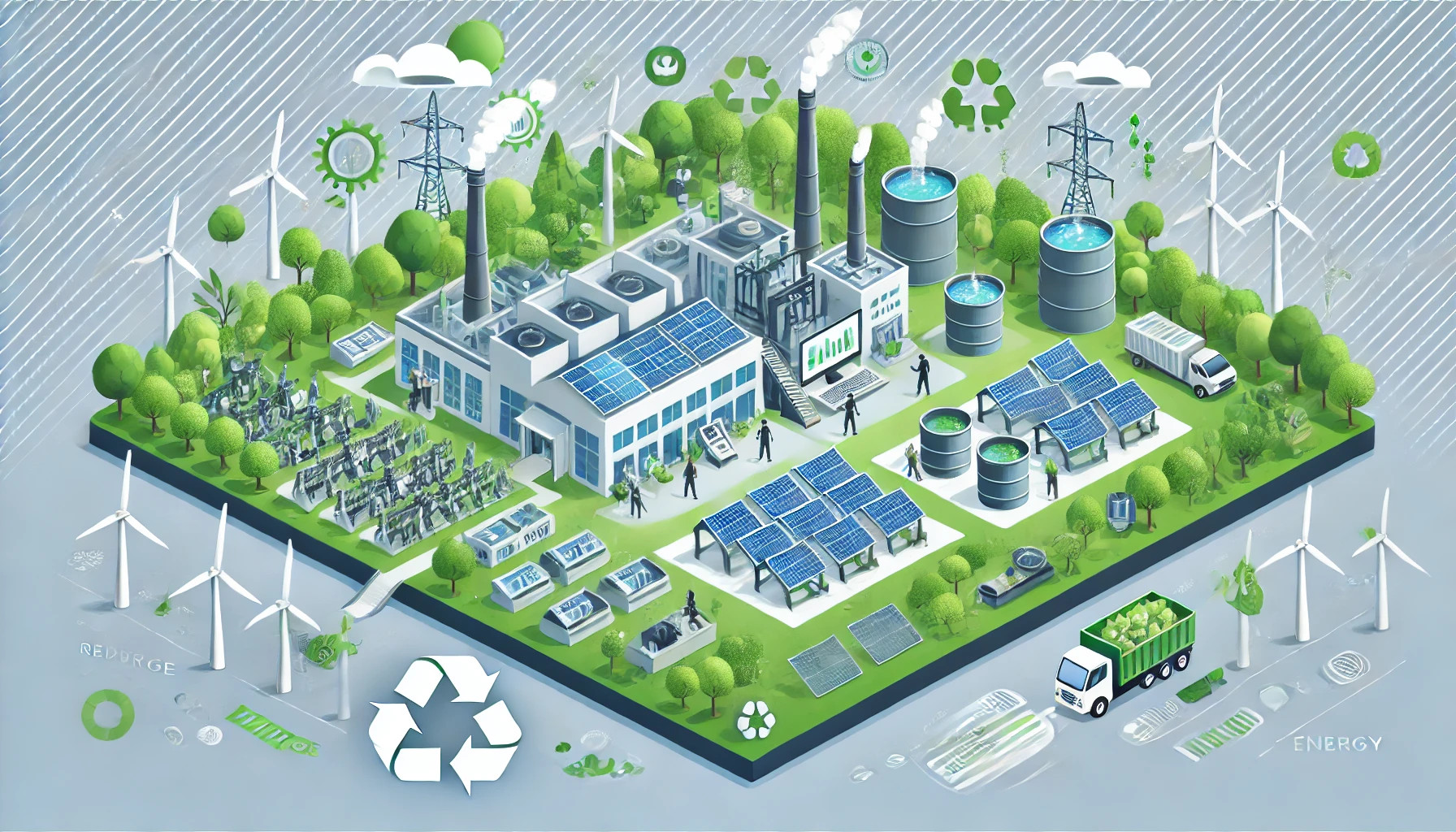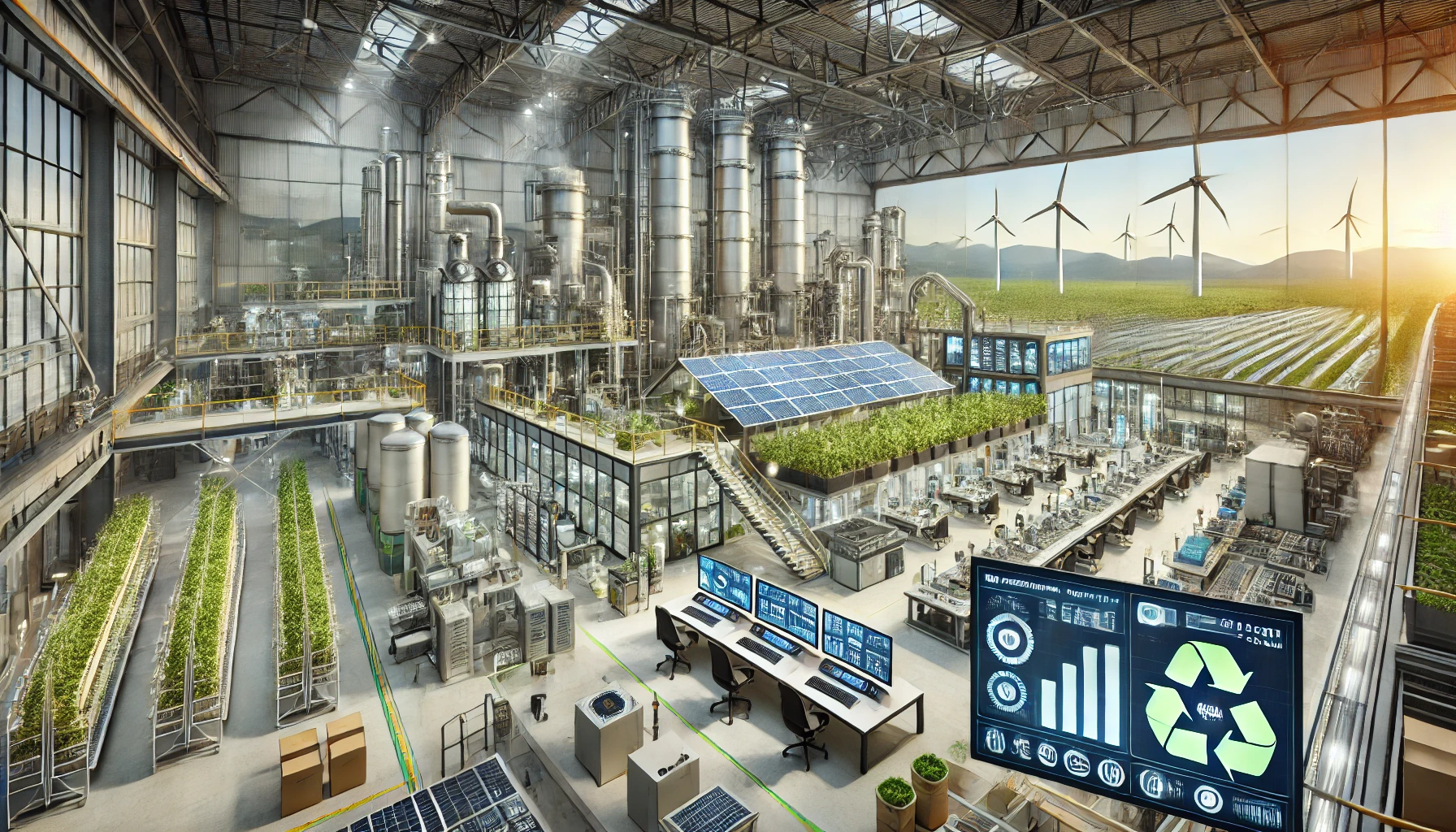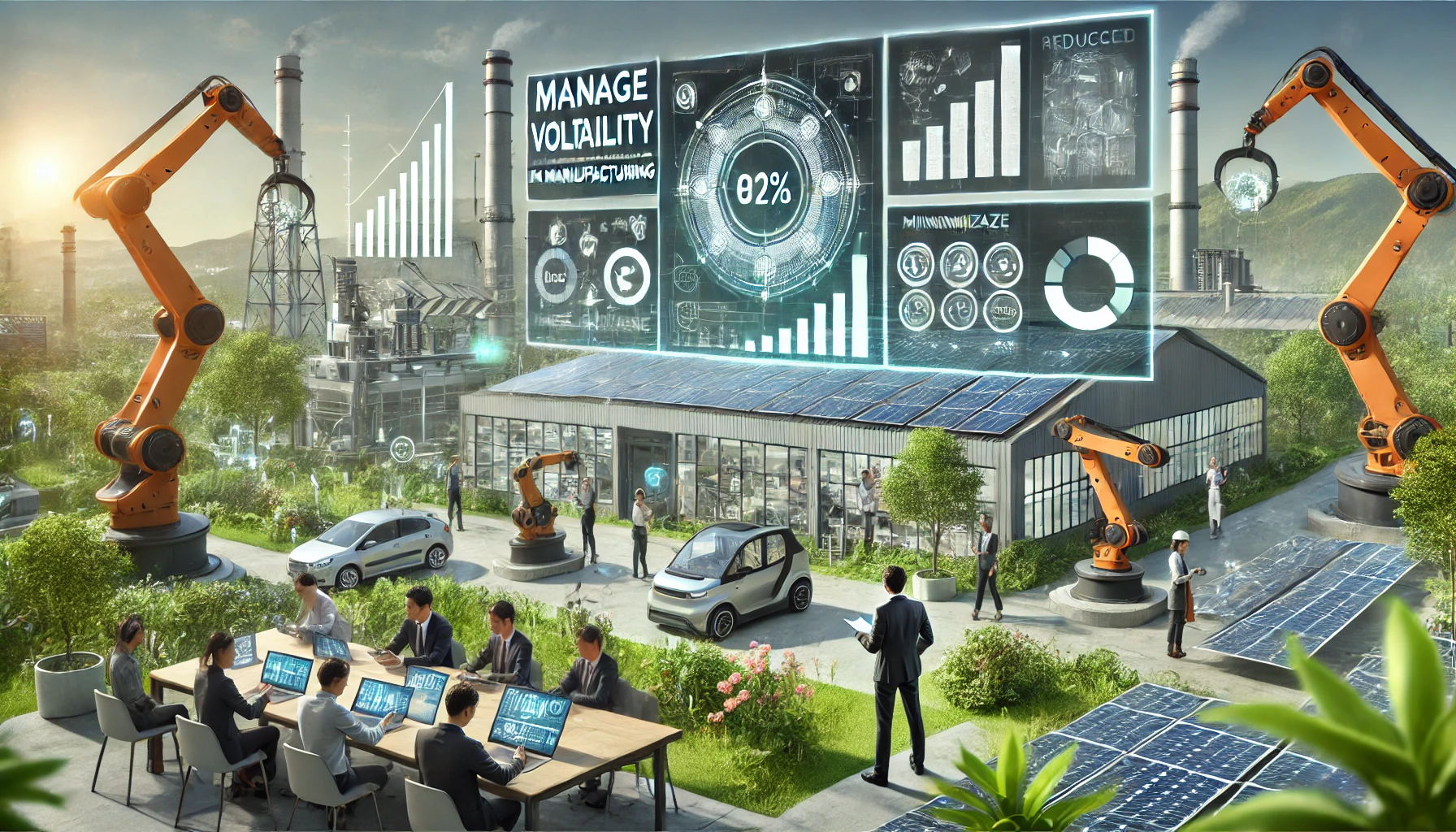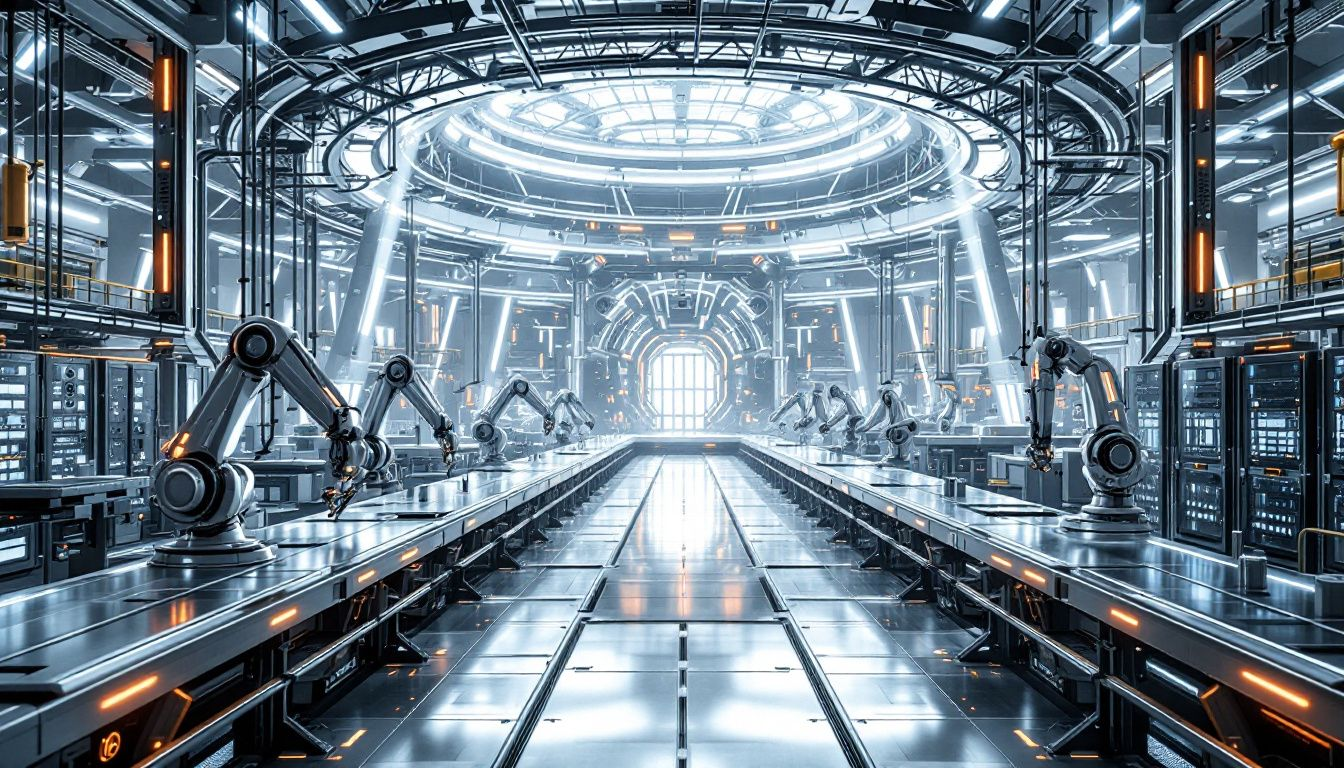The Future of Sustainable Manufacturing: Best Practices and Strategies
In the world of manufacturing, there are challenges and opportunities. Sustainable manufacturing is about minimizing the negative environmental impact, managing diverse business risks, and maximizing the benefits, beyond just economic growth.
This blog is about managing volatility and the environmental benefits of being sustainable.
What is sustainable manufacturing processes?

Sustainable manufacturing is the practice of producing products through economically sound processes that minimize environmental impact, conserve energy and natural resources, and ensure the safety and well-being of employees and communities. In today’s world where environmental is getting more important, sustainable manufacturing addresses these issues and offers economic, environmental, and social benefits.
At its heart, sustainable manufacturing is about a holistic approach to designing and managing the manufacturing processes. This means looking beyond efficiency and profitability and the entire lifecycle of the product from raw material extraction to end-of-life disposal. The goal is to create a closed-loop manufacturing system where waste is minimized, resources are reused or recycled, and energy consumption is optimized.
What are the 6 methodologies of sustainable manufacturing?
-
Reduce: Minimize resource and energy use.
-
Reuse: Use products and materials multiple times.
-
Remanufacture: Restore used products to like-new condition.
-
Recycle: Process used materials into new products.
-
Recover: Extract valuable materials or energy from waste.
-
Redesign: Design products for sustainability and efficiency.
Why Does Sustainable Manufacturing Matter To Process Plants?

Mainstream media is talking about the environmental consequences of industrialisation and pollution and that’s the top concern. A green manufacturing and processing plant has competitive advantage but those who hit the headlines for environmental disasters will lose customers. Manufacturers are realising that implementing sustainable manufacturing practices is a cost effective strategy. Reduced waste and better use of raw materials helps companies reduce their costs by increasing their profits and revenue.
Manage Volatility in Manufacturing and Minimize Negative Environmental Impacts

Managing variability is no easy task for any manufacturer and yet it’s critical to ensure smooth and efficient production processes. Variability can impact manufacturing in many ways, causing disruptions, delays and increased costs and exposing the operation to the diverse business risks inherent in the manufacturing industry.
Variability in manufacturing is caused by many factors: demand fluctuations, supply chain delays or issues, or unexpected production challenges which can disrupt production schedules and create waste. Understanding the impact of variability on manufacturing efficiency is the first step to mitigating its negative effects. Addressing these challenges helps in managing the many business risks and seizing the opportunities for operational efficiency improvements.
By reducing waste, going green, better resource allocation and optimising production processes manufacturers can create processes that minimise the negative impact on production and have a more sustainable and responsible manufacturing operation.
Why Managing Variability and Sustainable Manufacturing Matters
Now sustainable manufacturing not only benefits the environment but also has economic and social benefits. Where variability causes defects, rework and waste, sustainable manufacturing practices through adaptive and sustainable production processes can identify, track and adapt to the variability before it increases production costs. These practices highlight the importance of having a streamlined process and framework to minimize negative environmental impacts, improve reputation, expand customer base, reduce waste, cut costs, and increase profit margins despite challenges of no standard metrics and high initial costs.
Adaptive manufacturing strategies is key to adjusting production processes to variability. Manufacturers can produce products that are more consistent and reliable and that will lead to higher customer satisfaction and loyalty.
Challenges in Sustainable Manufacturing
While companies are starting to see sustainability initiatives and sustainable business practices as a positive influence on consumer behavior, they are also struggling to execute and implement such initiatives. There are no standard metrics or benchmarking. Many companies in the sustainable manufacturing industry have no system of monitoring and tracking their efforts which can lead to inefficient or inaccurate tracking of environmental aspects of their development. No funding for green development for the project at the moment.
Automotive Manufacturer’s Challenge with Shifting Consumer Preferences
Customer 1 wants his car painted Vantablack with self steering while customer 2 wants his car painted neon orange and runs on alternative gas. And the competition is coming out with their line of auto paint that changes color in the sun with electric and alternative gas options.
The once thriving automotive manufacturer had built a reputation for producing good quality vehicles. But soon they found themselves in a volatile market with changing consumer preferences and intense competition. Sales declined and the company struggled to keep up.
Sustainability and Survivability in the Manufacturing Industry
Sustainable Manufacturing is evolving. This affects many sectors: economy, environment and society. Manufacturing has many challenges where sustainability is required. A study on sustainable ideas in manufacturing has been done. Many companies have implemented measures to reduce greenhouse gas emissions, minimize negative environmental impacts, and preserve natural habitats.
Economically Viable and Adaptive Manufacturing Strategies
Adaptive manufacturing means improving process control, reducing machine downtime and implementing quality control measures which leads to better product quality and economically viable processes in the creation of manufactured products.
This approach minimizes the negative environmental impact of manufacturing systems while conserving energy and natural resources. Having an agile production system enables manufacturers to quickly adjust their production processes to changes in demand, reduce lead times and minimize inventory levels. This allows for more responsiveness and reconfiguring of production lines to different product requirements and ultimately green growth and environmental improvement through the creation of manufactured products.
Technology and Renewable Energy
Along with sustainable manufacturing comes technology. It is at the forefront of modernising manufacturing practices, optimising manufacturing processes for sustainability and efficiency and environmental responsibility. Technology plays a big role in sustainable manufacturing processes by minimising environmental impact, high energy efficiency, reducing material waste and using computer aided engineering (CAE) to design and optimise the processes. This reduces energy consumption and material waste and shortens time to market through virtual experiments. Reviewing and monitoring every part of the production process is key to energy efficiency and sustainability in manufacturing operations. Technology helps to streamline sound processes that minimises human error. With many technological solutions out there, it may be overwhelming to decide how to close your digital loop but we believe digital transformation is the answer.
-1.png?width=1414&height=2000&name=Copy%20of%20Product%20Comparison%20Chart%20(1)-1.png)
Navigate and Conquer
Managing variability in manufacturing and sustainable manufacturing practices are key to companies reducing energy consumption and increasing their bottom line. By using technology companies can identify and track variability sources, develop adaptive manufacturing strategies, improve operational efficiency and streamline processes. Manufacturers must integrate sustainable practices in their operations to stay relevant in this fast changing market. Conservation of natural resources and shift to renewable energy sources is critical in sustainable manufacturing as it supports environmental sustainability and company’s sustainability profile.
To be in line with the broader goals of sustainable development and United Nations Sustainable Development Goals we encourage companies to be economically viable while being environmentally and socially responsible.
To learn more about managing variability long term in manufacturing and sustainability initiatives we encourage you to reach out to us to schedule a call to create more efficient manufacturing that’s adaptive to market volatility.
The Role of MOM Software in Sustainable Manufacturing
Manufacturing Operations Management (MOM) software plays a pivotal role in the pursuit of sustainable manufacturing. MOM software serves as the central nervous system for modern manufacturing plants, helping companies streamline operations, monitor resource usage, and reduce waste. It bridges the gap between strategic sustainability goals and day-to-day operational efficiency.
How MOM Software Supports Sustainable Manufacturing Goals:
-
Real-Time Monitoring and Data Collection:
MOM software provides real-time insights into energy consumption, material usage, and machine performance. This data helps manufacturers quickly identify inefficiencies and make informed decisions to minimize waste and energy use. -
Predictive Maintenance:
With predictive analytics, MOM software identifies equipment failures before they happen, reducing downtime and extending the life cycle of machinery. This prevents unnecessary resource consumption caused by inefficient equipment. -
Process Optimization:
MOM software continuously analyzes production processes to identify bottlenecks, streamline workflows, and optimize resource allocation, reducing excess energy and raw material consumption. -
Waste Reduction:
Through better resource planning and inventory management, MOM software helps manufacturers minimize raw material waste and optimize recycling and reuse processes. -
Compliance and Reporting:
Environmental regulations are becoming more stringent worldwide. MOM software simplifies compliance reporting by automatically tracking emissions, waste, and other environmental metrics. -
Scalable Adaptation to Variability:
Market fluctuations and changing customer demands are common in manufacturing. MOM software allows manufacturers to quickly adapt to variability by adjusting production schedules, inventory levels, and resource allocation.
Real-World Example of MOM Software in Action:
Imagine a manufacturing plant using MOM software to monitor its energy consumption patterns. With real-time data, the plant identifies peak energy usage hours and optimizes production schedules to minimize power consumption during high-cost periods. Additionally, the software helps track raw material usage, ensuring minimal waste and better recycling.
Why MOM Software is Essential for Sustainable Manufacturing:
-
Improved resource efficiency
-
Reduced environmental footprint
-
Enhanced production agility
-
Better compliance with environmental standards
-
Increased cost savings and profit margins
By integrating MOM software into their operations, manufacturers can align their business objectives with global sustainability goals, ensuring long-term resilience and environmental responsibility.
Manufacturing Sustainability FAQ
What does sustainable mean in manufacturing?
Sustainable manufacturing means creating products from economically viable materials while reducing environmental impact while conserving energy and natural resources.
What do you mean by sustainable production?
Sustainable Production Definition: Sustainable production means production or service of goods or products through a non-polluting process or system. Conservation of energy and water.
What is an example of sustainable manufacturing?
Best examples of companies that are practicing sustainable production are Tesla Inc. It focuses on supplying electrical and storage devices with low environmental impact. Their Gigafactory in Nevada is powered by renewables.
Share this
You May Also Like
These Related Stories

SMT Logistics: Break Silos Between Replenishment and Scheduling

Boost Factory Productivity: 7 Proven Strategies for Success
.png)

No Comments Yet
Let us know what you think